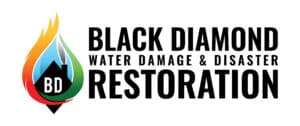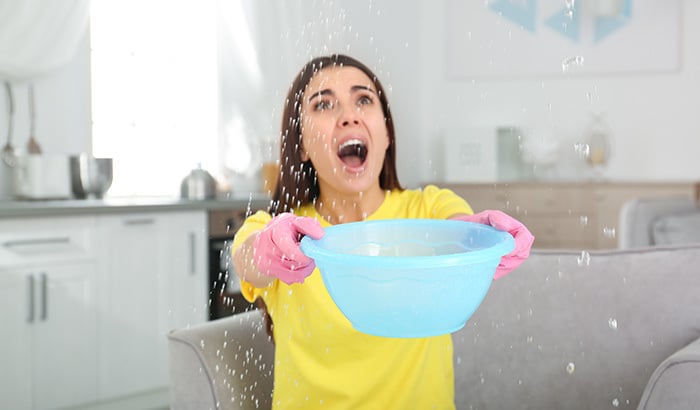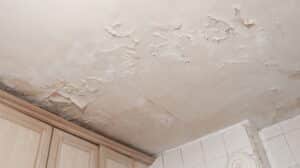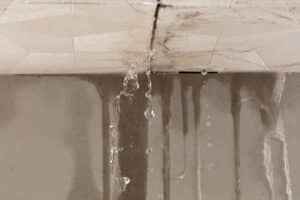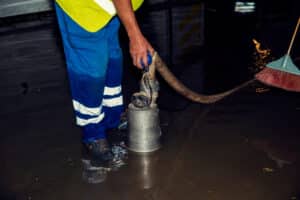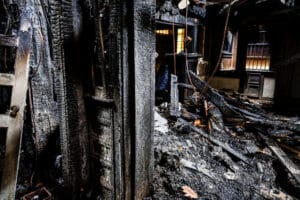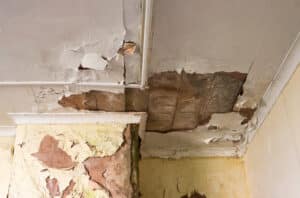A water leak may seem like it’s not that big of a deal, but it can easily cause irreparable damage to your home that will cost time and money to repair. Leaking water can ruin your property and destroy your belongings.
If not taken care of quickly and properly, water damage can also lead to mold growing in unexpected places throughout your home and causing health problems for you and your loved ones. Depending on the type of water leaking, your family’s safety could be in question.
Greywater and Blackwater
Plumbing systems separate greywater from blackwater. Greywater is water that has been used by sinks, showers, washing machines, etc, and may include particles from washing dishes and clothes, bathing, and other kitchen appliances.
Blackwater is water that is used in toilets and has come in contact with human waste. Both types of water used in plumbing require treatment before they can be safely used again. However, blackwater requires additional treatments to be safe to use.
Most leaks inside the home leak greywater into the living space, but blackwater leaks also occur and require immediate attention. Knowing the sources of greywater and blackwater can be helpful in knowing how to prevent leaks and how to fix leaks quickly and effectively.
All of these complications can result from leaks that can be prevented with some forethought and regular maintenance.
As the saying goes, an ounce of prevention is worth a pound of cure. While some of these tips may seem like a lot of work, it’s still a lot less work than cleaning up and restoring parts of your home after water damage has occurred from a leak that has gone unnoticed for a long period of time.
Here are 10 ounce-sized methods to prevent water leaks in your home.
- Check on all faucets and pipes
At least 1-2 times each year, take some time to check the pipes and faucets inside your home. This includes checking any water fixture and the connecting pipes. Look to make sure the faucets are working properly and the pipes are secure.
One sneaky culprit for leaks is the space underneath sinks that are usually enclosed by cabinets or counters. This space is often used for storage as well, so the pipes can easily be overlooked, and leaks can go unnoticed.
- Keep your roof in good shape and gutters clean
Plumbing leaks are not the only concern when it comes to preventing water damage to your home. Your roof is the first level of defense for your home from the outside elements. If it becomes damaged or worn over time, water can seep through and cause damage to the drywall and other parts of your home.
Make sure to keep your roof in good shape with regular maintenance. Replace shingles or other pieces as needed.
As long as you are checking on your roof, it’s a good idea to also take a look at the gutters and downspouts that surround your home. It’s common for gutters to become clogged with leaves or other debris. When this happens, water can’t flow properly and can end up collecting and overflowing the sides.
At least twice a year – usually spring and fall – clear the gutters of any leaves or debris that have collected there and ensure water flows properly through to the downspouts. It can also be helpful to double-check the area below the downspouts to ensure water flows away from the foundation of your home.
- Caulking
A quick preventative measure for leaks inside and outside of your home is to maintain proper sealing around windows, doors, and plumbing fixtures.
Over time, it’s possible that windows move or settle differently and this can open up spaces around the windows. Don’t worry, this usually doesn’t mean you have to replace the entire window. Instead, apply caulk to the open space and let it dry. This will seal any opening and prevent water from entering where it isn’t wanted.
Similarly, there are times when fixtures like bathtubs, toilets, or sinks need to be resealed. Applying caulking can quickly fix these issues and make sure water doesn’t leak from the plumbing fixtures.
- Hoses in winter
Before the weather turns cold, it is important to take care of any hoses attached to the outside of the house. The last thing you want in the middle of winter is pipes that have burst and flooded your home.
Winterizing hoses means detaching them completely from the faucet, emptying the entire hose of water, and storing them in a place where they will not be covered in snow.
- Water main
It is important to know where the main water shut-off valve is located for your home. If a leak is found, the first thing you should do is turn this main valve off to ensure there is no flooding or the water pressure in your system doesn’t change and cause more problems.
This valve controls the water flow into your house and is usually located on the perimeter of your home. However, it could be found inside instead, usually in a basement or storage space.
- Update plumbing
If you live in an older home, you will want to inspect the condition of the pipes. While copper pipes are better than some other materials, there is still a chance that the water can be contaminated with copper from those pipes.
Houses built within the last 20 years probably do not have copper pipes, so if your house is older, make sure you test your water and consider replacing the copper pipes with newer, safer materials.
- Yard maintenance
It might not seem to relate to water leaking into your home, but if the trees, bushes, grass, and soil are not maintained properly, you might encounter problems worse than cosmetic issues.
In general, the soil and landscape of around your home should allow for water to drain away from your house. When this is not the case, you risk a lot of issues from standing water like mosquitos and excessive water pooling around the foundation of the house.
- Water/leak detection devices
Installing leak detection devices can be time-consuming at first, but these contraptions allow you to easily identify leaks as soon as they start and where exactly they are coming from.
- Water pressure
Changes in water pressure can be a sign that there is a leak or issues with your plumbing system. Be aware of any changes you may notice, and make sure there are no leaks in the plumbing system of your home.
- Water bill
Monitor your water bill for any dramatic changes. If you haven’t recently made changes that would warrant an obvious increase in the amount of water your household uses, but your bill reflects a large increase in water usage, there is a good chance that there is a leak somewhere in or around your house.
For professional help in a disaster, call Black Diamond
If leaks and water damage do occur in your house, Black Diamond Water Damage & Restoration can quickly address the cause of the damage and make sure to get your home back to tip-top shape. The expert team of licensed professionals have years of experience in restoring property after any disaster.
Black Diamond Water Damage & Restoration is available at any time, day or night, 24/7. If you or someone you know needs help with water damage to your property, contact us today!
toto slot